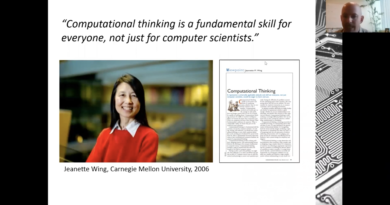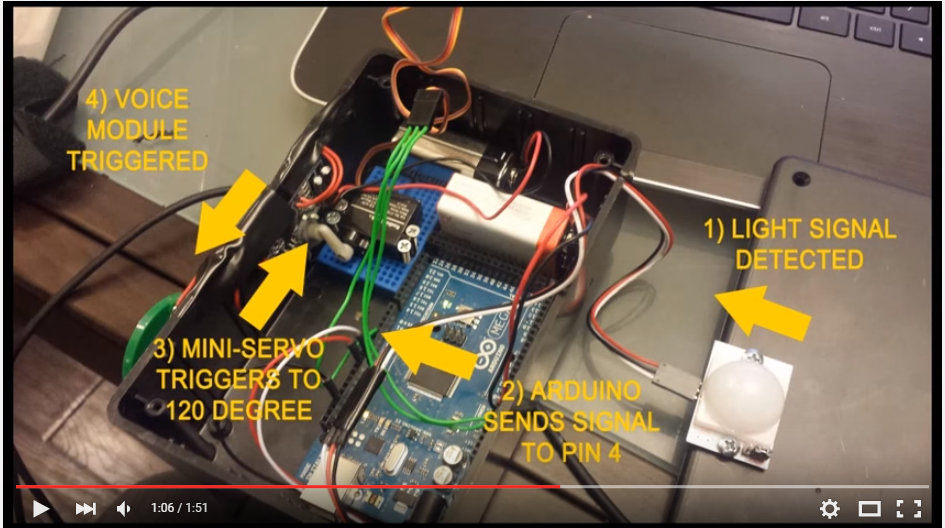Learn Something New- Pepperdine 770A
One of our assignments for EDLT770A, Cognition, Learning and Technology course was to learn something new, and document the process for later reflection and evaluation.
Introduction:
For my learn something new project, I decided to learn to do something that I’ve always wanted to learn, but never had time for. Taking the advice of my professor, I chose an activity that allowed me to spend time with my family, and it’s actually turned into something that we all enjoy doing together.
Background:
Though I love her dearly, and never knew the difference growing up, my Mom wasn’t a passionate cook except for Italian food, which is to be expected coming from an Italian family. In our house, Dad never cooked and so cooking was never something that I really attempted to do.
When I got married and started a family, neither my ex and I were good cooks, and would often joke that there were three categories of dinner at our house… Take out, Frozen, and pre-prepared from Costco.
As a single dad, I was constantly scrambling to feed the kids and I, but never really had the time to cook, so we ended up almost always picking up fast food on the way home, with an occasional pasta from a box, or pizza delivered to the front door.
All that changed when I met Maren! In addition to all her other nice qualities, Maren grew up cooking meals for her whole family. Prior to eating Maren’s cooking, I honestly didn’t realize that food that good could come from my kitchen.
Though there are many different ways to approach learning something new, I was immediately drawn to the idea of reading tons of recipes and step by step descriptions about how to prepare food, so I could demonstrate my knowledge through tricky multiple choice questions. NOT. Who thinks that’s a good idea anymore?
Knowing my propensity for learning through doing, my sometimes blinding overconfidence, lack of time and nearly complete aversion to reading anything that isn’t required, I decided to ask my local expert for a custom curriculum that would allow me to be active and social while demonstrating my knowledge through the creation of authentic culinary artifacts.
Over several weeks we chose one meal to prepare together. Featured here tacos, lasagna roll-ups, and a bacon, eggs and cinnamon rolls for breakfast.
Throughout the process, I learned a lot, but not always the things I was expecting. For instance, Did you know you can buy veggies at the self-check out? Turns out, all you have to do is enter the item number and the computer does the rest! I had no idea. This is the sort of thing you don’t learn from a cookbook.
Though I could have searched the web and found an abundance of information about cooking, including videos and virtual communities of practice, I was fortunate enough to enter into more of an individualized master and apprentice relationship, the foundation of which had been laid previously with the occasional vegetable prep, and the ever-present washing of dishes and cleaning up the kitchen.
Upon deeper analysis of my hesitance in joining a virtual COP, it could be said, that my identity had not yet been transformed into a person who cooks. At least not to the point of feeling comfortable enough to enter a formal community of practice…yet.
Thinking about cooking from a Cognitive perspective, there is certainly an abundance of process knowledge and quantitatively based measurements that seem to lend it to choosing a purely cognitive approach. Though I could have attempted to learn on my own through reading and discovering new discrete pieces of knowledge, I knew from experience that nothing beats having your own expert.
Still thinking through a cognitive lens, I definitely sought to reduce my cognitive load by asking Maren to guide the cooking sessions. What made it nice was that we dynamically adjusted my level of independence based on our co-constructed assessment of my current proficiency. I took over when I felt competent and confident in the given task, and asked for help when either of us felt there was something I was likely to need to be aware of. This allowed me to really appreciate the amount of tacit knowledge that’s involved in being an expert cook.
Looking at my experience through the lens of Situative theory, which takes into account the social interactions and material-world that the learning is situated within, it was the immediate and impactful relevance of the learning focus, that made the process enjoyable and meaningful.
From a sociocultural, Vygotskian perspective, Maren was my more knowledgeable other within own Zone of Proximal Development. (Zygotsky) Our interactions could also be described in terms of Cognitive Apprenticeship as well. Given that our interactions largely consisted of modeling and coaching.
However we chose to look at the learning experience with regard to theoretical considerations, learning to cook was something I enjoyed tremendously, and plan to continue to do into the future.
References:
Jarvela, S., Volet, S., & Jarvenoja, H. (2010). Research on motivation in collaborative learning: Moving beyond the cognitive-situative divide and combining individual and social processes. Educational Psychologist, 45(1), 15-27. doi: 10.1080/00461520903433539
Derry, S. J., & Steinkuehler, C. A. (2003). Cognitive and Situative theories of learning and instruction. Encyclopedia of cognitive science, 800-805
Vygotsky, L.S. (1978). Mind and society: The development of higher mental processes. Cambridge, MA: Harvard University Press.




